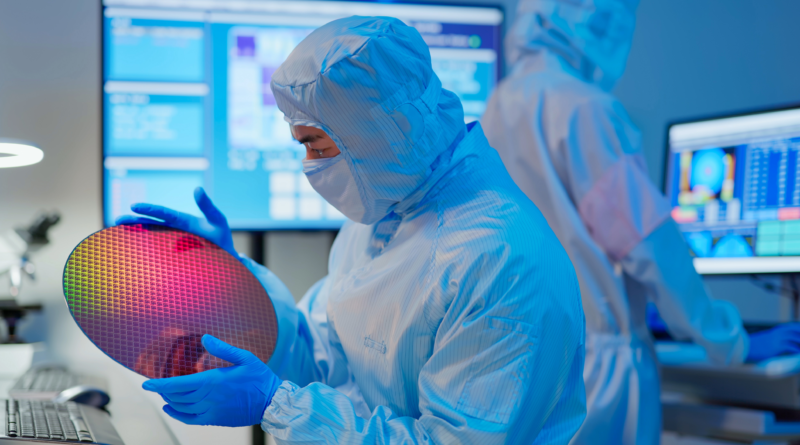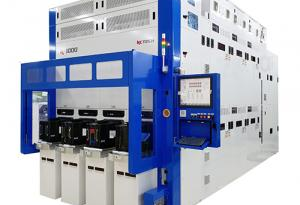1 Top Chip Stock You've Never Heard of Worth a Look If You Like Dividends – The Motley Fool
Founded in 1993, The Motley Fool is a financial services company dedicated to making the world smarter, happier, and richer. The Motley Fool reaches millions of people every month through our premium investing solutions, free guidance and market analysis on Fool.com, top-rated podcasts, and non-profit The Motley Fool Foundation.
Founded in 1993, The Motley Fool is a financial services company dedicated to making the world smarter, happier, and richer. The Motley Fool reaches millions of people every month through our premium investing solutions, free guidance and market analysis on Fool.com, top-rated podcasts, and non-profit The Motley Fool Foundation.
You’re reading a free article with opinions that may differ from The Motley Fool’s Premium Investing Services. Become a Motley Fool member today to get instant access to our top analyst recommendations, in-depth research, investing resources, and more. Learn More
A downturn is coming for Tokyo Electron this year, which could present buying opportunities.
Tokyo Electron (TOEL.Y -1.28%) receives little coverage or fanfare, yet it is a dominant force in the semiconductor manufacturing world. Indeed, it is among the five largest suppliers of chip fab equipment (the machines used by fabs, or facilities that make chips), along with top names ASML Holding and Applied Materials. The company also pays a dividend, which has gradually risen over the years and currently yields 3.4%.
However, Tokyo Electron is going to get hit this year by a downturn in the chip industry. Shares are down over 60% from their all-time highs, and further bumpiness in 2023 could set up some great buying opportunities. Here’s what you need to know.
If you follow the semiconductor industry, you’ve no doubt heard about how important EUV (extreme ultraviolet) lithography is. The most advanced chips, including those used in high-end smartphones and AI chips used in datacenters, rely on EUV. ASML currently has a monopoly on the equipment that produces EUV.
But ASML has dependencies of its own. Yes, ASML machines produce the EUV light. But the light that creates the finest of features on tiny advanced chips needs to be shone through a pattern (called a photomask, like those produced by Applied Materials). And the EUV light itself is completely worthless unless it is shone onto and reacts with a special mix of chemicals called photoresist. This is where Tokyo Electron comes in.
Depositing photoresist materials and managing the post-EUV exposure process is a delicate affair. Tokyo Electron currently has a monopoly on the deposition process of photoresist in EUV, though Lam Research is working on new processes to bring some competition to the table. Tokyo Electron also competes with the likes of Lam and Applied in other parts of the chipmaking equipment space, like in etch (the “carving” of fine features onto the surface of a semiconductor wafer) and wafer testing.
Given the booming interest in diversifying the world’s manufacturing of semiconductors, there’s plenty of long-term growth available for Tokyo Electron. But that trajectory is being put on hold for the moment.
A glut of chip inventory cropped up by late 2022, especially for certain components like memory. Consumer demand for devices like PCs and smartphones is the culprit, moderating from the rampant spending spree from early in the pandemic. Chip manufacturers have slowed spending on fab equipment, bringing Tokyo Electron’s revenue growth into question for 2023. The company’s sales are likely to fall by a mid-teens percentage rate compared to last year, along the lines of general industry trends expected for the year ahead.
Nevertheless, overall chip demand is almost certainly headed higher over the next five to 10 years. In keeping with this general outlook, Tokyo Electron updated its financial targets for 2027, stating the goal of reaching 3 trillion yen in annual sales (approximately $7.5 billion as of exchange rates on April 12, 2023) and an operating profit margin of at least 35%.
That compares with revenue of just shy of $7 billion in the past 12-month stretch, and operating profit margin of 28.6%. Tokyo Electron may not expect to be the fastest-growing semiconductor stock in the years to come, but dividend stock investors will like that growing profit margin — as rising margins often mean higher cash payouts.
Tokyo Electron stock currently trades for just 15 times trailing 12-month earnings per share. This metric could get a bit more expensive in the coming quarters as revenue and profit takes a temporary hit. However, the company is in a good position to continue doling out cash dividends. It reported having $2.96 billion worth of cash and short-term investments at the end of 2022 (based on exchange rates from Japanese yen to U.S. dollars), and no debt.
I’m exercising caution at this juncture, based on a bumpy road ahead in 2023. But with a 3.4% dividend, room to increase the payout, and a solid growth and profitability outlook for the next five years, Tokyo Electron is absolutely worth getting familiar with right now.
Nicholas Rossolillo has positions in ASML and Applied Materials. The Motley Fool has positions in and recommends ASML, Applied Materials, and Lam Research. The Motley Fool has a disclosure policy.
Invest better with The Motley Fool. Get stock recommendations, portfolio guidance, and more from The Motley Fool’s premium services.
Making the world smarter, happier, and richer.
© 1995 – 2024 The Motley Fool. All rights reserved.
Market data powered by Xignite and Polygon.io.

